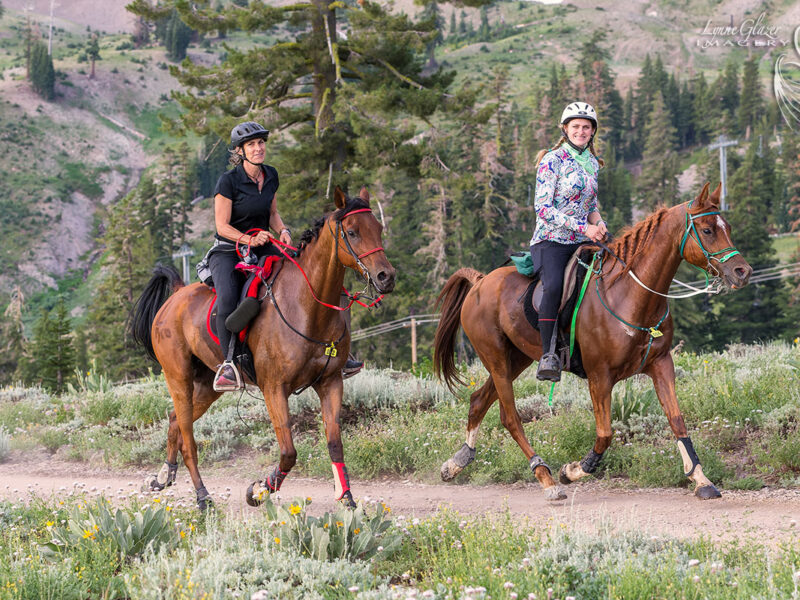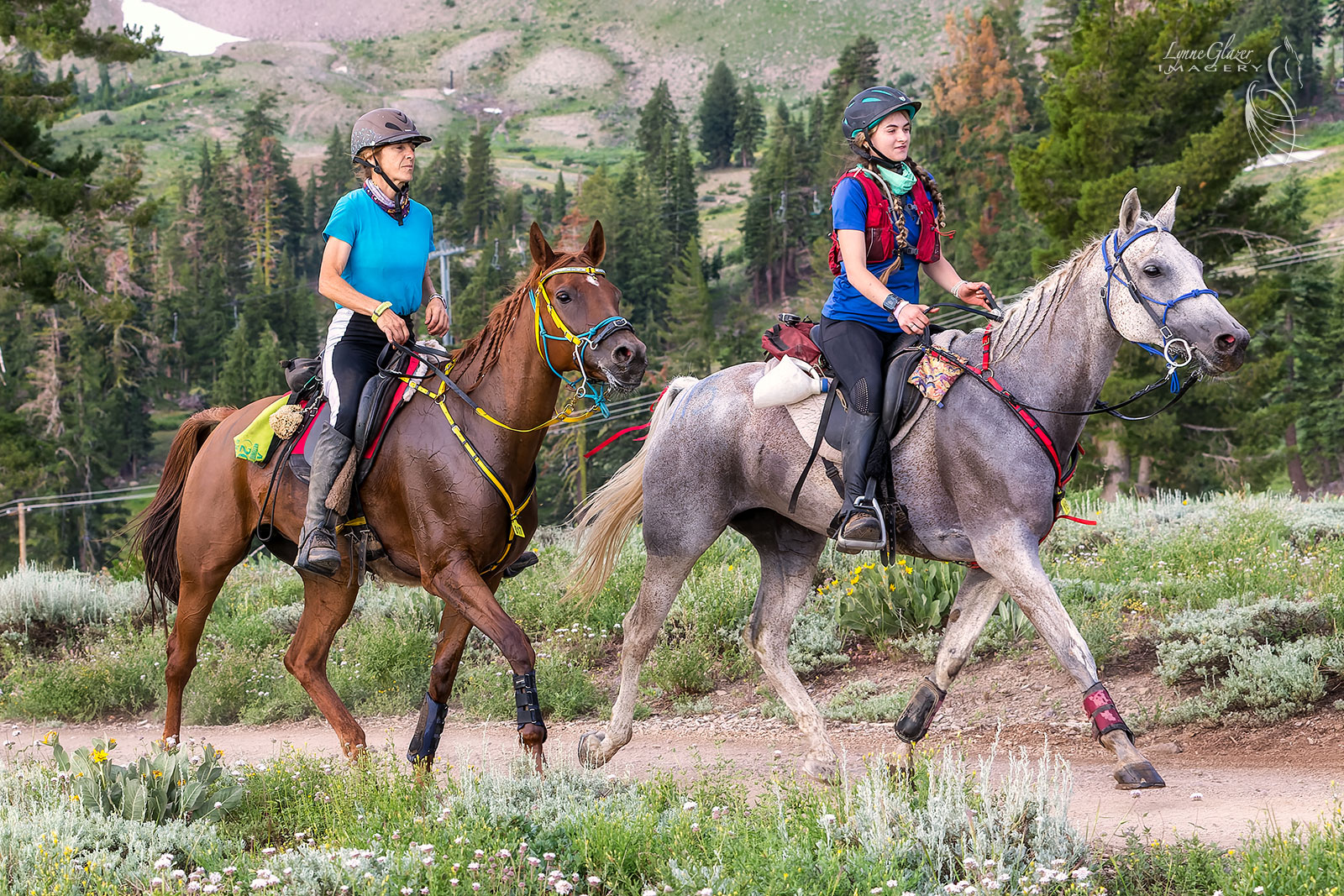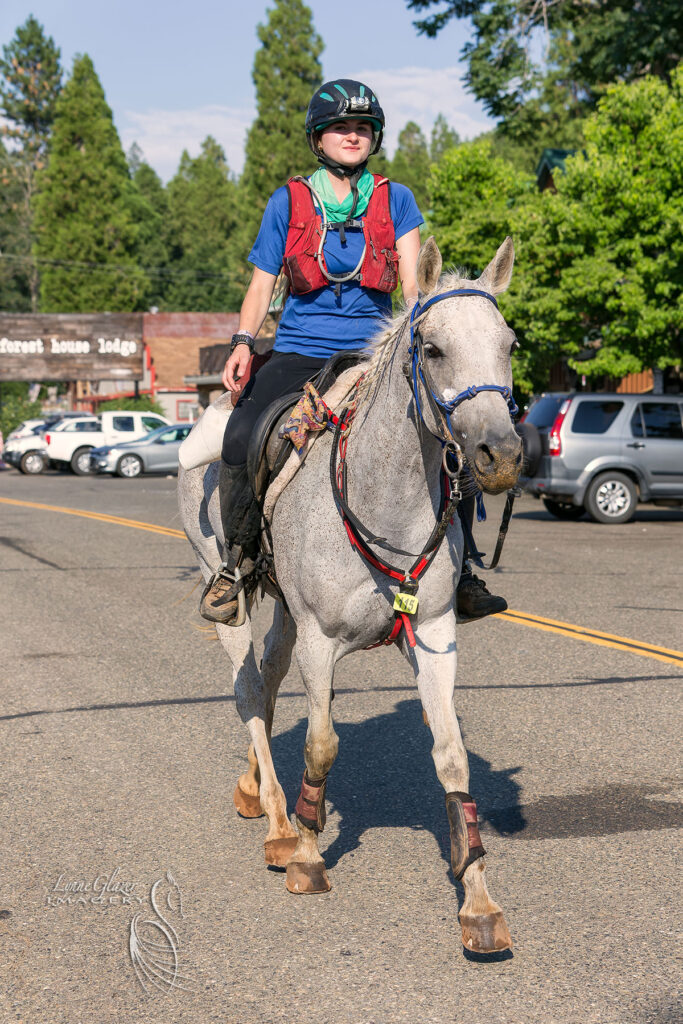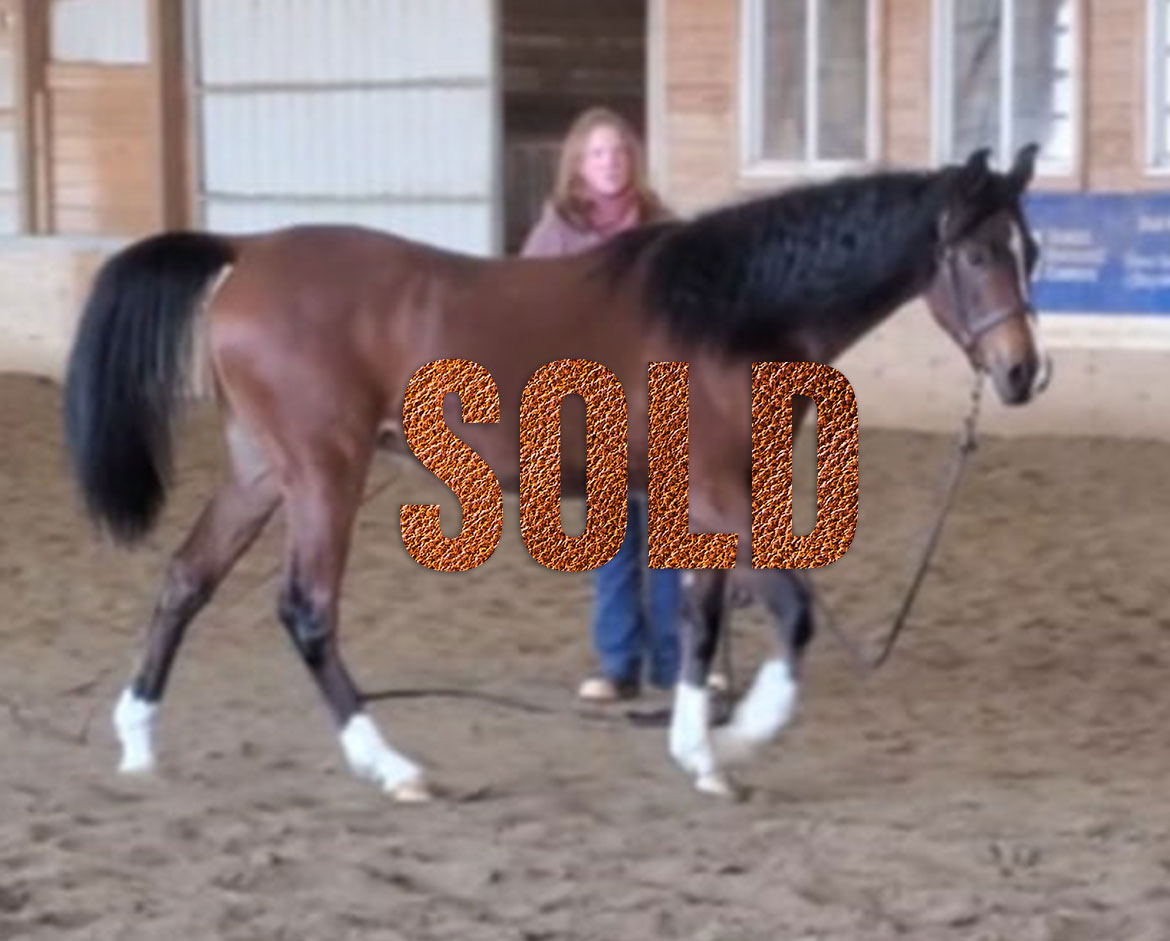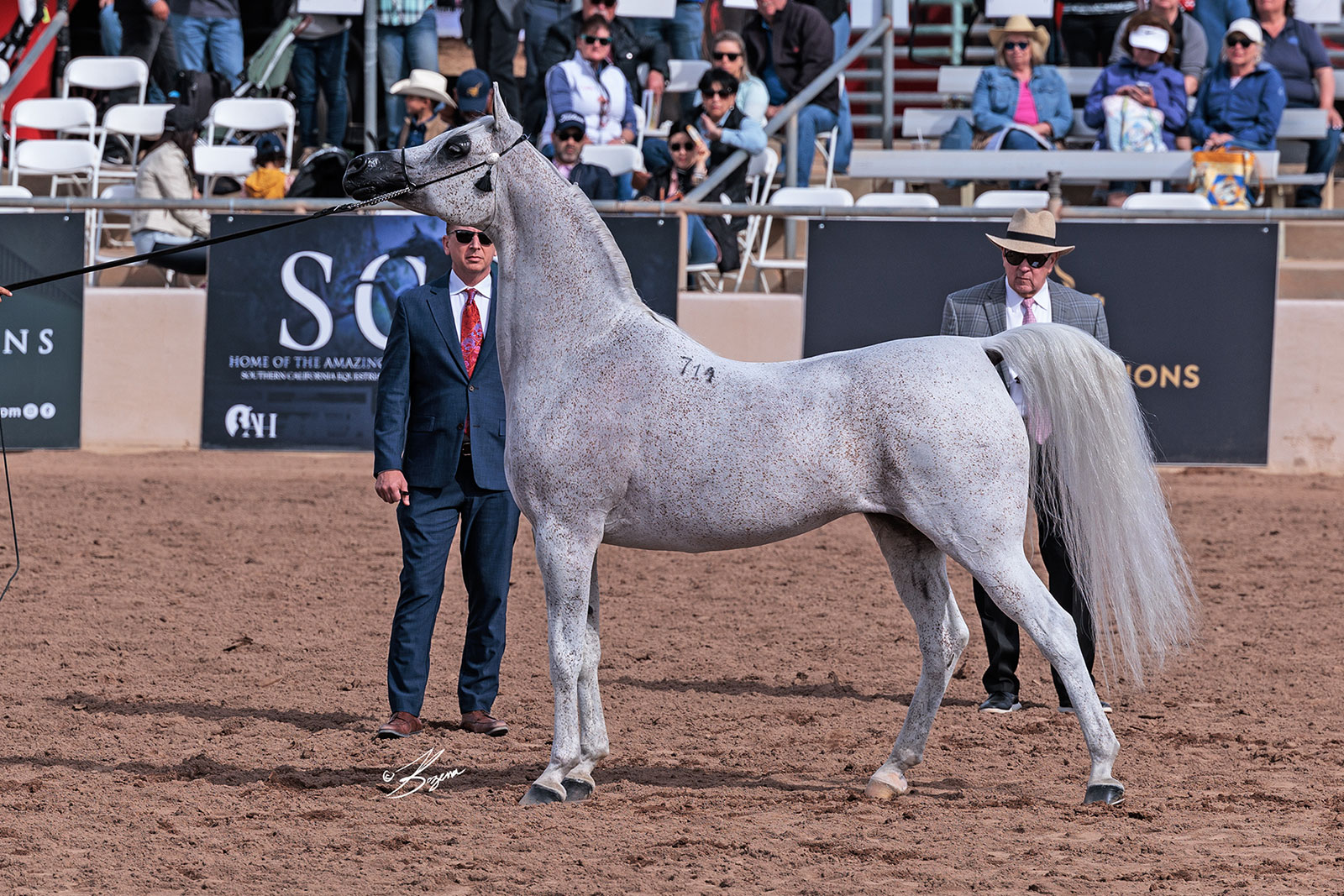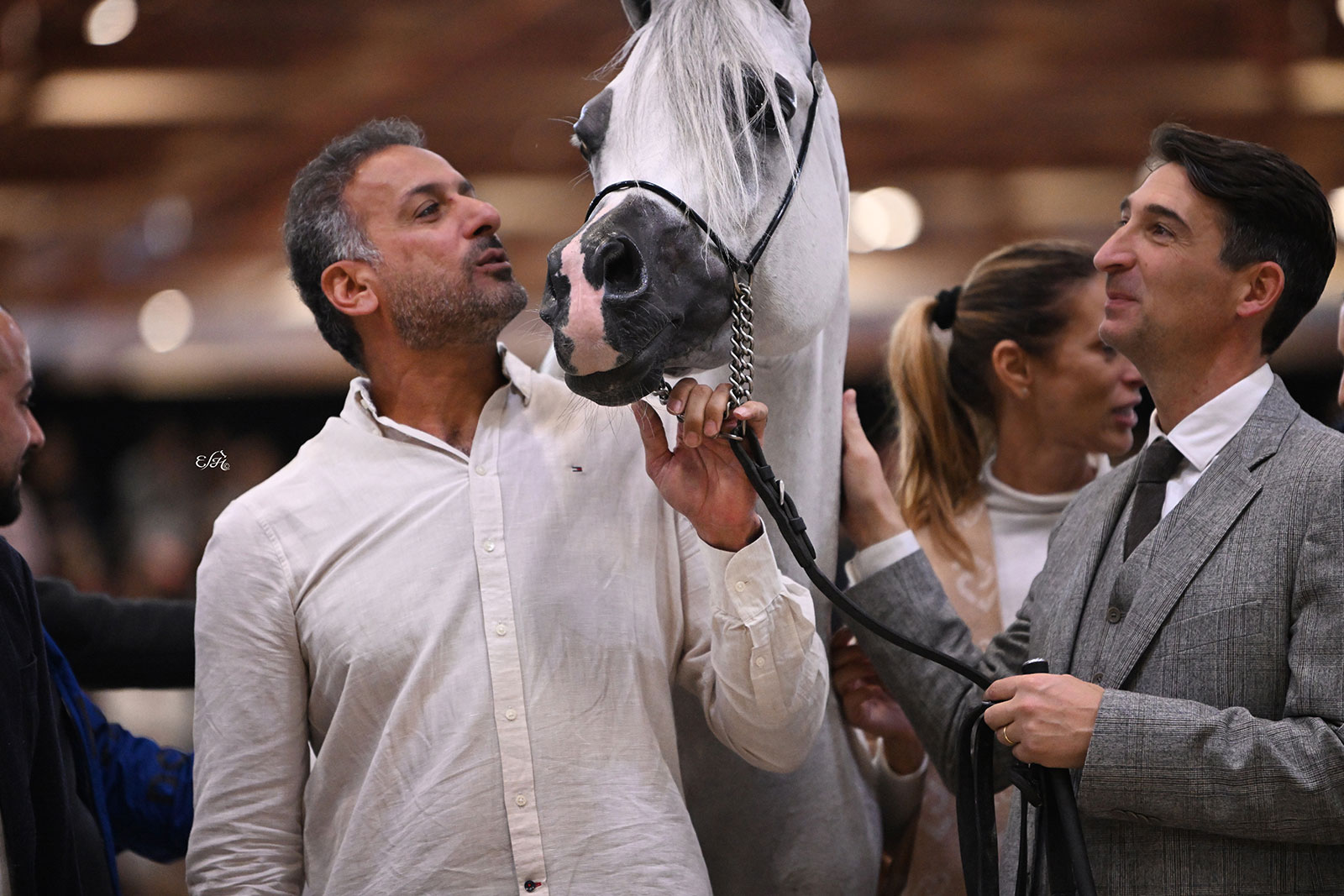Above: From left to right, First and Second Place winners, mother and daughter, Jeanette and Reyna Mero, aboard their Arabian mares.
By Merri Melde
As featured in the Fall 2024 issue of Arabian Horse World
Combining almost 15,000 feet of elevation gain and 21,000 feet of descent, punishing heat, rocks and bogs underfoot, canyons, rivers, and the Sierra Nevada mountain range to cross, the 100-mile Tevis Cup is one of the toughest endurance rides in the world. Riders from all over the globe come to test their horsemanship, partnership, and luck with their mount from the start at Robie Park above Lake Tahoe to the finish line in Auburn, California, in a time limit of 24 hours.
The Tevis Cup has seen many firsts throughout the decades. Still, this year’s 68th running was the first time a mother-daughter team, Jeanette and Reyna Mero, from Mariposa, California, finished first and second.
Mother Jeanette rode 12-year-old Ozark Kaolena SWA (“Lena”) to first place in a ride time of 14 hours and 50 minutes. Fourteen minutes later, daughter Reyna crossed the finish line aboard 11-year-old Chndakas Eklipse SWA (“Clippie”). The next morning, Clippie took the Haggin Cup, awarded to the horse in the top ten judged to be in the most superior condition.
While any breed can compete in and finish Tevis, the Arabian, with its marvelous long-distance stamina, dominates entries. Sixty-seven percent of this year’s entries were Arabians, and twelve percent were part-Arabians.
The Meros ride race-bred Arabians from Polish and French lines. They are three-quarter sisters by Dormane sons Kaolino and Chndaka, out of FMR Ozark Eklipse (by Cassels Roszlem). Lena won two races in a 19-start career, while Clippie ran unplaced in six starts. Their racing foundations made the transition to the endurance trails easier.
The mares had finished Tevis previously, Lena three times, and Clippie twice. The Meros were hoping for a chance to win this year, but that depends on training, luck, and how the horse feels. “The code at my house is, ‘Ride the horse we have underneath us that day,’” Jeanette said. She consistently conditioned the mares in temperatures over 100 degrees, an advantage for this year’s exceptionally hot ride.
The Meros held their top twenty positions during the first half of the ride, being passed out on the trail by faster horses but utilizing the mares’ quick recoveries to move up in the vet checks. “The mares are metabolic freaks,” Jeanette said. Around the 60-mile mark, the Meros gained the lead. “And then it was game on. The hardest thing after that was managing the mares’ need to be cooled, drink, and get a bite to eat, and not wasting time.”
Arriving at Francisco’s, the next-to-last vet check at 85 miles, Clippie took a little longer to recover. Reyna encouraged her mother to go on and not wait for her. Jeanette and Lena raced on to the finish in the dark, a thrilling but tense time of looking over her shoulder, waiting for the sound of hoofbeats coming up behind her. “Lena gave to me willingly and easily everything we needed to cross under those lights [at the Auburn finish line] first!”
Another astonishing record set in this year’s Tevis Cup was courtesy of Hal Hall from Auburn, California. Riding the 13-year-old Arabian gelding Direct, by Stratagem out of Doree (by Bandjo de Falgas), Hall finished Tevis an unequaled 33rd time.
Hall has a remarkable 82% finish rate at Tevis. All but one of his Tevis finishes were aboard Arabians. He visited the Tevis winner’s circle in 1974 and 1977 aboard the phenomenal El Karbaj (and won the Haggin Cup with him in 1972 and 1978) and in 1990 aboard HCC Zarlusko.
It was Hall’s third consecutive finish on Direct, an Asgard Arabian from West Virginia with Russian/French/American Crabbet lines.
Their ride this year was not devoid of tension. They finished with just a nail-biting five minutes to spare, a first for Hall, who normally finishes in the midnight-to-1 AM time frame.
“The weak link was me. It wasn’t the horse,” Hall said. Though he was conditioned in the heat, the fierce heat and intense sun affected him with dizziness and nausea this year. “At Francisco’s vet check [85 miles], I was now competing not just with other riders but against the clock. I was at the cut-off time.
“So I asked my horse to give me what he had left, which was a lot, and we flew in to finish in time. Direct did a wonderful job. I think he’s a keeper,” he quipped.
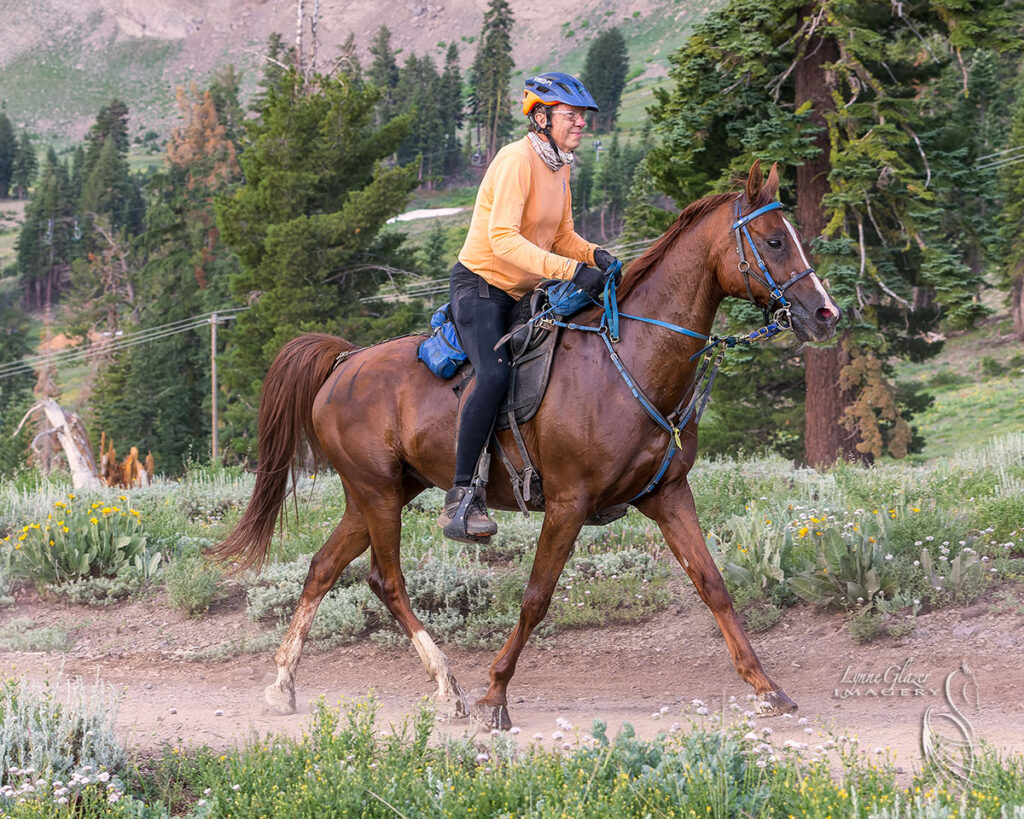
Hal Hall, with an 82% completion rate at Tevis, aboard Arabian gelding Direct.
Tevis averages a just-over-50% finish rate, but this year’s heat contributed to the lowest in the ride’s history: 40%.
And yet the Arabian dominated. Purebred Arabians swept the top twenty positions; Arabians and Arabian crosses accounted for 94% of this year’s finishers.
“You plan for the worst and hope for the best,” Hall summed up the beast that is the Tevis Cup. And saddle up an Arabian.
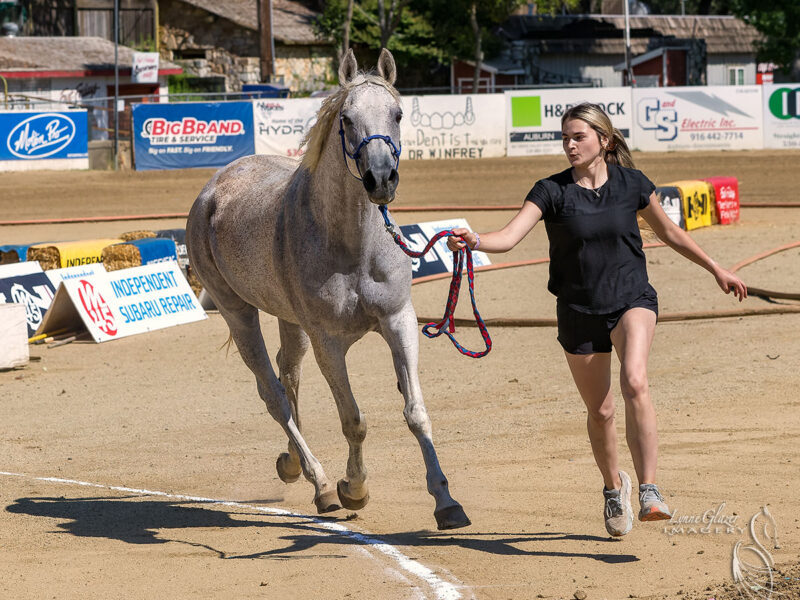
Winner of the Haggin Cup, Reyna Mero and Chndakas Eklipse SWA.
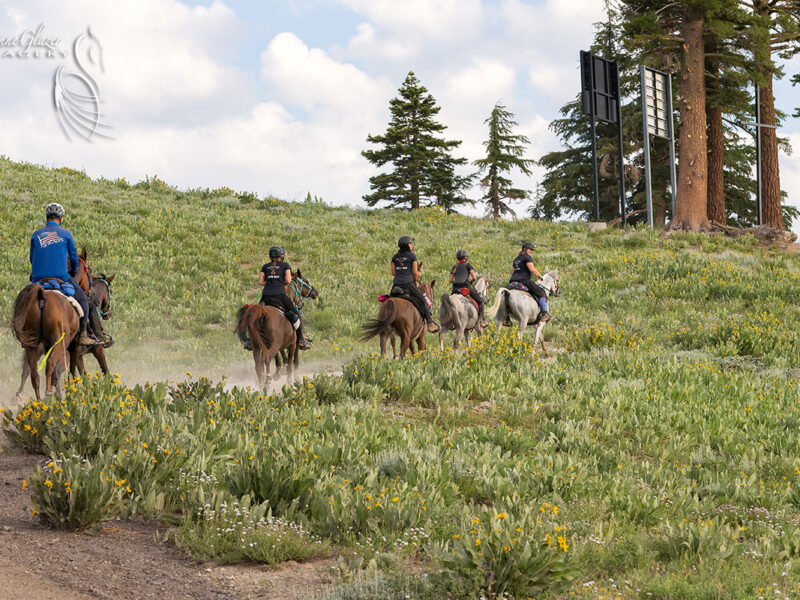
Junior riders head off onto the Tevis Cup ride.
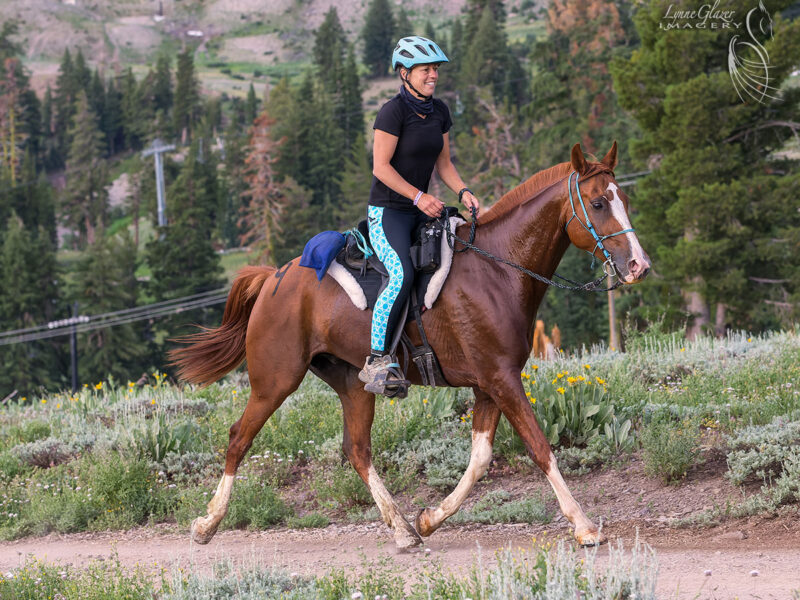
Many time Tevis Cup winner, Heather Reynolds, riding Sonic to a Sixth Place finish.
